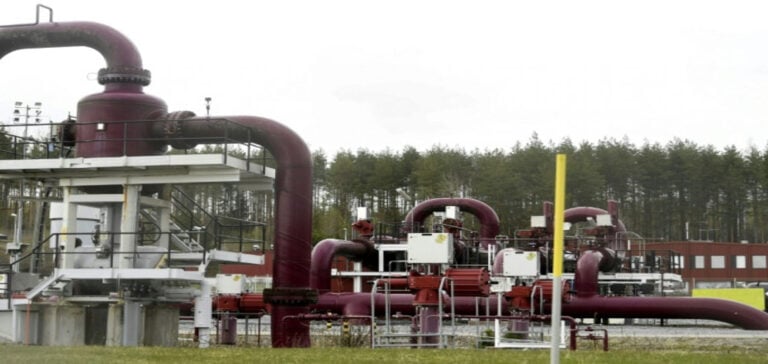The closure of the gas pipeline in Estonia has a direct impact on Finland’s energy policy. On October 8, 2023, the Finnish gas grid operator announced this news, which had significant implications for the country.
A vital gas pipeline for Finland
Commissioned in 2019, the “Balticconnector” pipeline is the only channel for importing gas to Finland (apart from LNG) since Russian imports ceased in May 2022. Russia stopped supplying natural gas to Finland by pipeline after the Scandinavian country refused to pay Moscow in rubles. Following Russia’s invasion of Ukraine, Moscow asked customers in “unfriendly countries”, including EU member states, to pay for gas in rubles, as a way of avoiding Western financial sanctions against its central bank.
Natural gas accounts for around five percent of Finland’s energy consumption, mainly used in industry and combined heat and power generation. The closure of the Balticconnector pipeline highlights Finland’s vulnerability to a major energy crisis, with increased dependence on LNG to maintain its natural gas supply.
The origins of the Balticconnector pipeline
The “Balticconnector” pipeline project was initially proposed by the Finnish natural gas company Gasum in cooperation with Estonia’s Eesti Gaas. Following the implementation of the EU’s third energy package, EG Võrguteenus, a former subsidiary of Eesti Gaas, replaced the latter. EG Võrguteenus was later acquired by Estonian transmission system operator Elering. In October 2015, Gasum abandoned the project due to its commercial viability. It was replaced by the Finnish state-owned company Baltic Connector OY.
The project has undergone several crucial stages prior to its commissioning in 2019. The first stage, a feasibility study, was completed in May 2007. A preliminary environmental impact assessment program was carried out in 2010. In 2010, the European Commission funded the investigation into the possibilities of creating a more diversified natural gas network in the Baltic Sea region, which also included the Balticconnector project. Offshore studies began in November 2013.
Construction began following the signing of the agreement between Elering and Baltic Connector in October 2016. The pipeline was inaugurated in December 2019 at ceremonies in Helsinki and Paldiski, attended by the presidents of Estonia and Finland, economic ministers and senior European Commission officials. Balticconnector began commercial operations on January 1, 2020, and quickly supplied more than a third of Finnish gas demand in its first month of operation.
Current consequences
The closure of the Balticconnector pipeline raises serious concerns about Finland’s energy security. At a time when the country has to cope with the absence of Russian gas imports, the suspicion of a leak in its last operational pipeline is a blow to the Nordic nation.
Finland will now have to rely more heavily on LNG imports to maintain its natural gas supply, which could have consequences for energy costs and industrial supplies. The ongoing investigation will determine the extent of the damage and the time required to repair the suspected leak.
Final Analysis
The situation underlines the importance of greater diversification of energy sources in Finland, and the need to strengthen energy infrastructures to guarantee stable supply. Dependence on a single source of natural gas supply clearly exposes the country to major geopolitical risks, calling for strategic reflection on the future of energy in Finland.






















